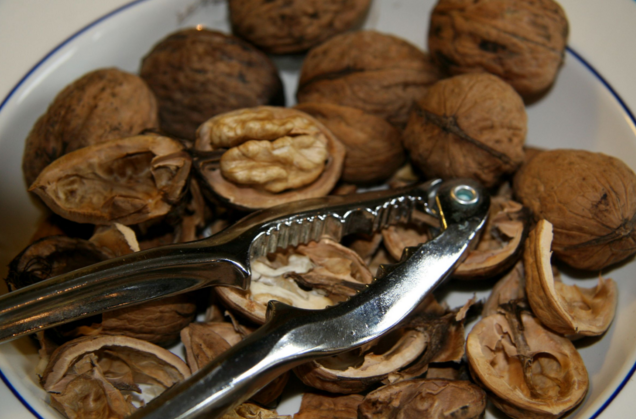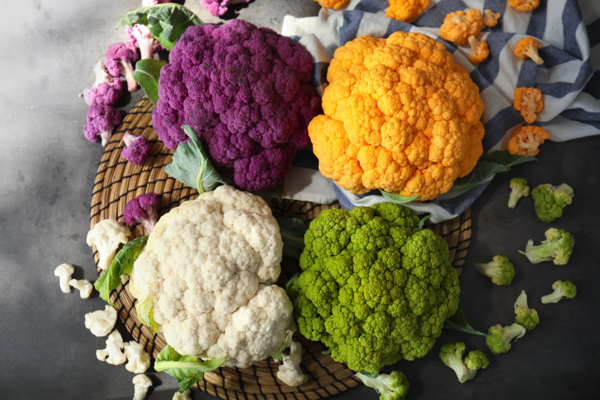 Parler
Parler Gab
Gab
- Inflammatory foods like processed meats, refined grains, and sugary drinks increase colon cancer death risk by 87%.
- Anti-inflammatory diets rich in leafy greens, wild-caught fish, and organic teas dramatically improve survival rates.
- Combining an anti-inflammatory diet with moderate exercise reduces death risk by 63%.
- Chronic inflammation fuels cancer growth, while nutrient-dense foods empower the immune system to fight back.
- Nutrient dense plant components like black walnut hull, nettle leaf, and burdock root offer powerful anti-inflammatory benefits.
- Movement was found to negate colon cancer risk, as it helps the lymphatic system detoxify.
The deadly diet hiding in plain sight
Most people don’t think of their morning bacon, afternoon soda, or evening beer as weapons against their own survival. But the study, tracking over 1,600 stage III colon cancer patients, found that these everyday foods create a storm of inflammation in the body—a storm that cancer cells thrive in. Dr. Sara Char, the study’s lead researcher, explains: “One of the most common questions that patients ask is what they should do after treatment to maximally reduce their risk of cancer recurrence and improve survival.” The answer, it turns out, isn’t found in a miracle drug but in the grocery aisle. Processed meats, fried foods, and refined sugars don’t just sit idly in the body—they actively feed cancer cells, sabotaging recovery. Meanwhile, the Mediterranean diet, rich in whole, unprocessed foods, has repeatedly been shown to starve cancer and extend life.18 super foods that fight back
Nature offers an arsenal of cancer-fighting nutrients, hidden in vibrant, unassuming foods. These aren’t just healthy choices—they’re lifelines:- Organic dark leafy greens – Kale, spinach, and Swiss chard are packed with chlorophyll and sulforaphane, compounds that help detoxify carcinogens.
- Wild fatty fish – Salmon, mackerel, and sardines deliver omega-3s, which cool inflammation at the cellular level.
- Organic colorful vegetables – Purple cabbage, beets, and carrots contain anthocyanins and carotenoids that help the immune system recognize and destroy abnormal cells.
- Organic tea – Matcha, green tea, and chamomile are rich in polyphenols, which slow tumor growth.
- Organic nuts and seeds – Walnuts, flaxseeds, and chia seeds provide lignans and healthy fats that protect DNA.
- Ancient grains – Quinoa, amaranth, and black rice feed beneficial gut bacteria, strengthening the body’s first line of defense.
- Hulls, roots, and nettles - Several nutrient dense plant medicine are available and can be included in the diet in powder form, from black walnut hull, to burdock root, to nettle leaf and dozens more.
Incorporate an herbal apothecary
Black walnut hull, nettle leaf, and burdock root are powerful botanicals rich in anti-inflammatory compounds that may enhance cancer survival. Black walnut hull contains juglone, a bio-active compound with demonstrated anti-inflammatory and anti-tumor effects, inhibiting pathways like NF-κB that drive chronic inflammation linked to cancer progression. Nettle leaf is packed with flavonoids, such as quercetin, which reduce pro-inflammatory cytokines (e.g., TNF-α and IL-6) and modulate immune responses, potentially slowing tumor growth. Burdock root contains arctigenin and polyphenols that suppress inflammatory mediators like COX-2, while also supporting detoxification—key in reducing cancer-promoting oxidative stress. Together, these herbs target multiple inflammatory pathways, creating an unfavorable environment for cancer proliferation. Chronic inflammation fuels tumor survival and metastasis; by mitigating it, these botanicals may improve treatment efficacy and patient outcomes. Studies suggest their compounds can enhance apoptosis (programmed cell death) in cancer cells while protecting healthy tissue.Movement as medicine
The study revealed another crucial layer: exercise amplifies the benefits of an anti-inflammatory diet. Patients who walked just one hour, three times a week, saw their survival odds soar. It’s not about running marathons—it’s about consistent, gentle movement that keeps the body resilient. Dr. Edwin McDonald IV from UChicago Medicine puts it plainly: “People really need to focus on their pattern of eating—as opposed to eating a few particular foods—to reduce inflammation. You need to have an anti-inflammatory lifestyle.” With colorectal cancer rates rising—especially among younger adults—this research is a wake-up call. Every meal is a chance to rewrite the story of survival. The science is clear: what we eat doesn’t just fill us—it heals us or harms us. The choice is ours. Sources include: NaturalHealth365.com Dana-Farber.org Pubmed.gov Journals.llw.com Enoch, Brighteon.aiCauliflower: A versatile superfood packed with nutrients and health benefits
By Laura Harris // Share
Top 10 ways to get more TURMERIC in your diet to fight inflammation
By Lance D Johnson // Share
Governments continue to obscure COVID-19 vaccine data amid rising concerns over excess deaths
By patricklewis // Share
Tech giant Microsoft backs EXTINCTION with its support of carbon capture programs
By ramontomeydw // Share
Germany to resume arms exports to Israel despite repeated ceasefire violations
By isabelle // Share










